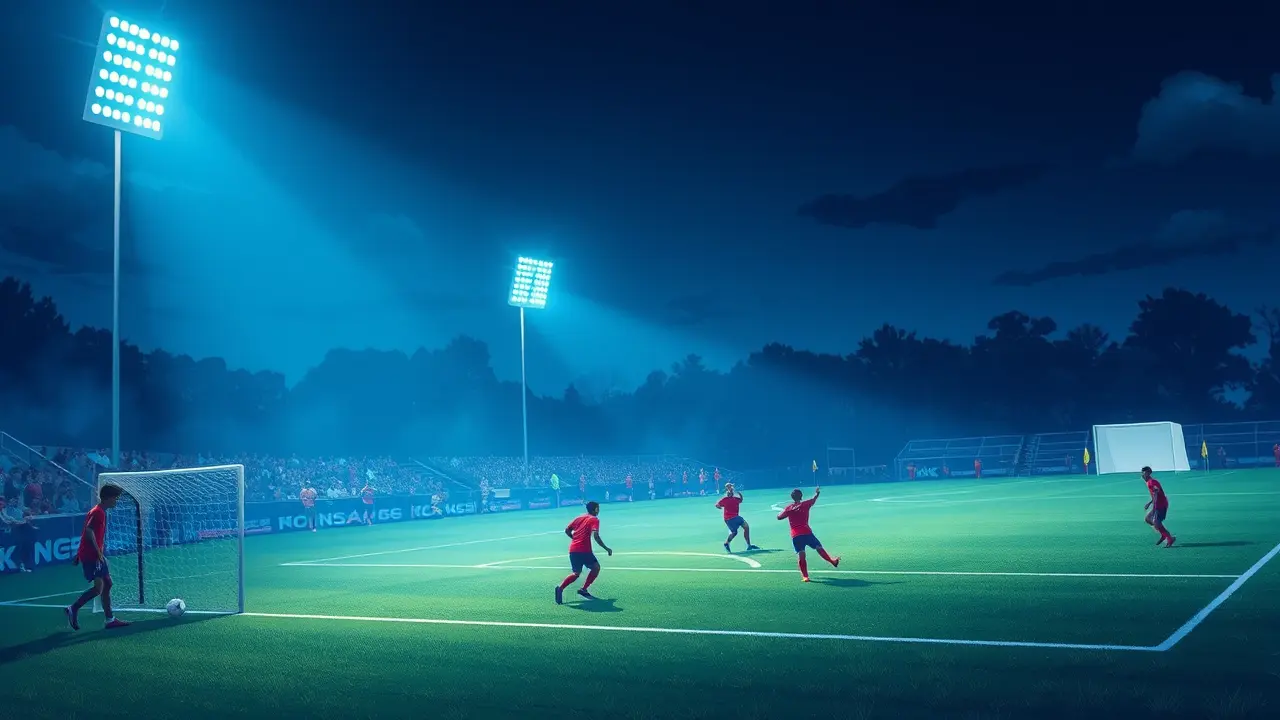Four killed in mass shooting after Mississippi football match.
The final whistle had blown, the crowds were dispersing into the warm Mississippi night, the echoes of a local football clash still hanging in the air, when the unthinkable shattered the post-game calm. In a horrifying turn of events that transforms a community field from a place of passion and rivalry into a crime scene, a mass shooting has left four people dead and twelve others injured, an incident reported to have occurred around midnight, casting a long, dark shadow over the very essence of sport.As a journalist who lives and breathes football analytics, who sees the beautiful game as a microcosm of life itself with its calculated passes, strategic defenses, and moments of pure, unscripted brilliance, this tragedy feels like a brutal foul against humanity, a stark reminder that the lessons we learn on the pitch—about resilience, teamwork, and overcoming adversity—are desperately needed off it. The raw numbers are devastating: four lives, with stories and families, their potential and promise cut short as suddenly as a poorly timed tackle; twelve more bearing the physical and psychological scars, their recovery a marathon far more grueling than any match.This isn't just a statistic; it's a league table of grief, and every community touched by this violence is now in a relegation battle for its soul. We must ask, with the same intensity we debate a manager's formation, what leads to such a breakdown? Where was the defensive line in our societal structure that should have prevented this? Drawing a painful parallel, it brings to mind the legendary composure of a Franz Beckenbauer, a player who could read the game and neutralize a threat before it materialized; our communities desperately need that level of foresight and proactive peacekeeping.The context here is critical—this did not happen in a vacuum. Across the nation, these scenes are becoming grimly familiar, a recurring nightmare that plays out in schools, supermarkets, and now, tragically, at the very gatherings meant to provide escape and unity.Expert commentary from criminologists and community leaders will inevitably point to a nexus of factors: the alarming accessibility of firearms, the simmering tensions that can spill over from competitive fervor, and the profound lack of mental health resources that leaves individuals to suffer in silence until they break. The consequences are manifold and heartbreaking; the local football league will be forever changed, with parents now looking at the stands with fear instead of pride, and young players associating the game they love with trauma.The investigation will be as meticulous as a video assistant referee review, piecing together the timeline, the motive, the weapon used—each detail a piece of a puzzle that no one wanted to solve. But beyond the immediate fallout, this event demands a deeper, more analytical insight into the American condition.Just as I might compare a modern midfielder's passing accuracy to that of Xavi Hernández, we must compare our nation's approach to public safety to that of other countries where such massacres are rare. The data doesn't lie, and the stats on gun violence in the United States are more damning than any losing record.The potential for change exists, but it requires a fundamental shift in strategy, a move away from reactive mourning to proactive prevention. We need to invest in our communities with the same fervor that top clubs invest in their youth academies, nurturing well-being and providing outlets for conflict resolution.The beautiful game teaches us that victory is sweeter when achieved with honor and solidarity; the challenge now is to apply that same principle to our daily lives, to ensure that a night of sport is remembered for the goals scored, not the lives lost. The memory of those four individuals must become a catalyst, a reason to push forward with a new game plan—one where safety and compassion are the ultimate trophies.
It’s quiet here...Start the conversation by leaving the first comment.
© 2025 Outpoll Service LTD. All rights reserved.
